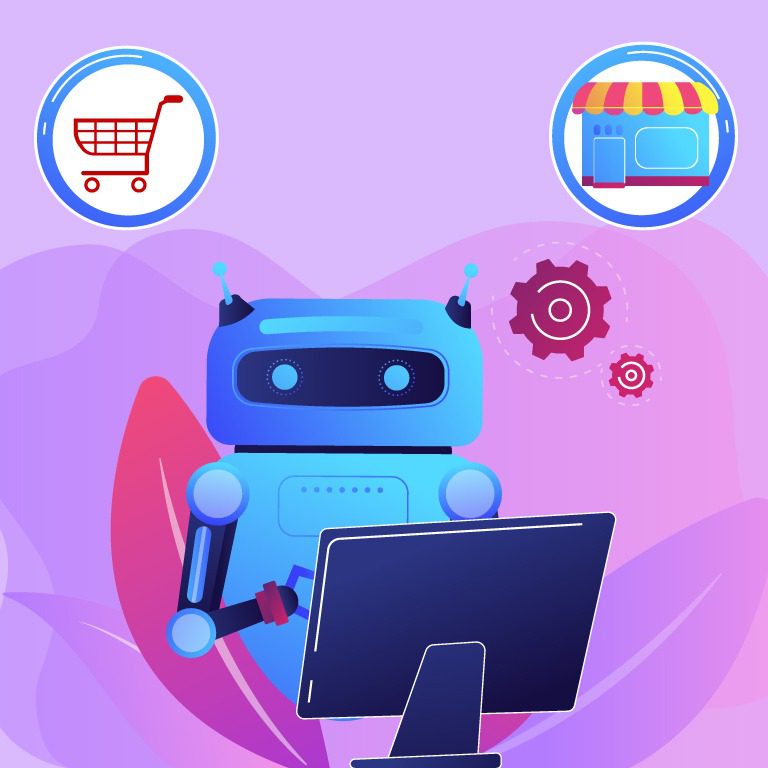How will Artificial Intelligence change the ecommerce industry?
What is Artificial Intelligence?
Artificial Intelligence (AI) is a broad term that refers to any machine or computer-based system that exhibits behaviour which mimics that of a human. AI can be broken down into three categories: Machine Learning, Deep Learning and Robotics & Natural Language Processing.
Machine learning involves feeding large amounts of data into an algorithm which then learns from it by identifying patterns within the information. This allows the algorithm to make predictions about future events based on what it has learned from past data points. It’s a form of artificial intelligence because it requires no human input other than supplying the initial dataset–and there’s no need for programmers to write code specific to each task; instead they just need access to large amounts of relevant information so their machines can learn on their own!
AI and Selling Online
In this section, we’ll look at how AI can help you sell more online by automating certain tasks and personalising the customer experience.
- Automation: AI-powered bots can automate some of your most tedious tasks, such as answering customer questions or responding to negative reviews. They can also help with things like inventory management and order fulfillment–allowing you to focus on higher-level tasks like marketing campaigns or product development instead of manually processing orders all day long!
- Personalisation: Personalised content is an effective way for brands to connect with their customers on social media platforms like Facebook and Instagram because it makes them feel special by showing them that they’re valued as individuals rather than just another number in someone else’s database (or inbox).
Book A Free Demo with OnePatch

AI and Multichannel Selling
One of the most important aspects of ecommerce is inventory management. With AI, you can use data to determine which products are selling well and which ones aren’t. You can also use it to predict when you need more stock or different types of products in order to meet customer demand.
AI will also help with customer service by providing suggestions for what customers might like based on previous orders, improving communication between customers and sales staff by answering questions before they’re asked (such as “how do I return this?”), and reducing the number of calls coming into call centres by directing them straight through automated systems instead.
AI and Multichannel Marketing
AI and multichannel marketing is a match made in heaven. The ability to predict customer behavior, automate campaigns and improve conversion rates are just some of the ways AI can help you reach your goals.
The first thing to understand about this is that AI isn’t just about automation–it’s about making smarter decisions based on data analysis and machine learning algorithms. This means that when you use it as part of your multichannel marketing strategy, it will be able to analyse all of your customer data (including social media) so that when they come across one of your ads or products online they’ll have more information than ever before at their fingertips–and thus be more likely to buy from you!
Book A Free Demo with OnePatch
Ethics of AI in Ecommerce
There are a few ethical concerns that should be addressed when considering the use of AI in ecommerce. The first is data privacy, which has been a hot topic recently with companies like Facebook and Google facing criticism for their handling of user information. If you’re using an AI system to make decisions about your customers and their purchases, it’s important that you understand how this information will be used and protected.
Another concern is algorithmic bias -the idea that algorithms can be written in ways that reflect or even perpetuate existing biases within society at large (for example, if an algorithm learns from past data sets with racial or gender discrimination). This can lead to unintended consequences like targeting ads based on race or gender stereotypes without revealing why they’re being shown those ads in the first place!
Finally there are questions surrounding unanticipated consequences: What happens if we build an intelligent robot capable of making decisions just like humans? Or what happens when we give machines free will? These are all fascinating questions worth exploring but beyond our scope here today!
The Future of AI in Ecommerce
Today, AI is being used to improve customer experience and drive sales. In the future, it will be able to do much more than that:
- Advanced Automation: AI will be able to automate mundane tasks like inventory management and order fulfilment. This would allow businesses to focus on higher-value activities like creating new products or improving customer service.
- Improved Personalization: As we saw earlier in this article, retailers are already using data from their customers’ behaviour in order to personalise their marketing efforts and product recommendations. However, this is just the tip of iceberg when it comes down how far companies can go with personalization by integrating artificial intelligence into their systems (or even creating entirely new ones).
- Automated Customer Support: With an integrated system that uses machine learning algorithms trained on past interactions between customers and agents along with real-time data about current conversations happening between them (e.,g., via chatbots), companies can provide faster responses without sacrificing quality–and even offer customised solutions based on each individual’s needs!
Conclusion
Artificial intelligence is revolutionising the ecommerce industry. AI-powered solutions are already being used to improve customer experience, increase sales and reduce costs. The potential for growth in this area is enormous as more companies adopt machine learning technology to automate tasks that were previously done manually by humans.


